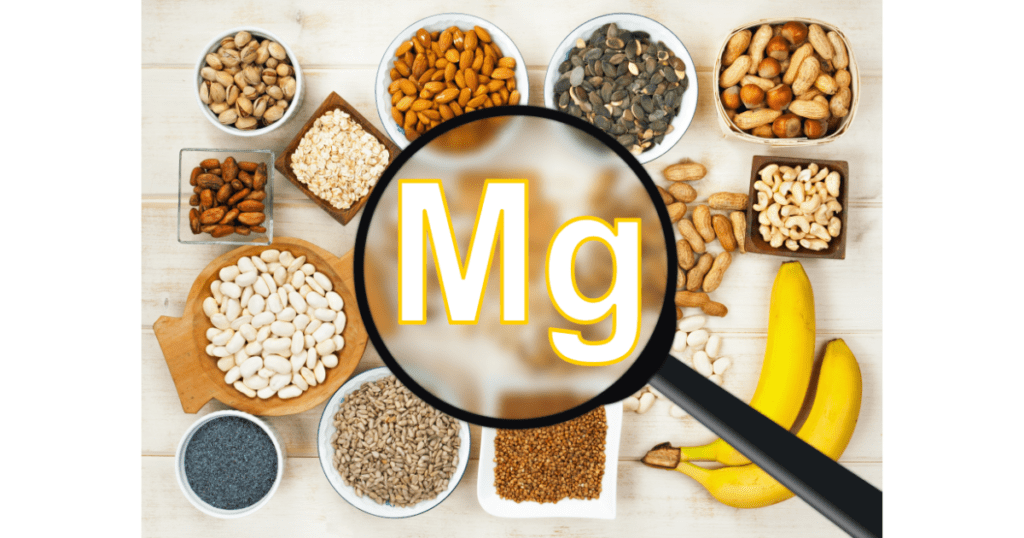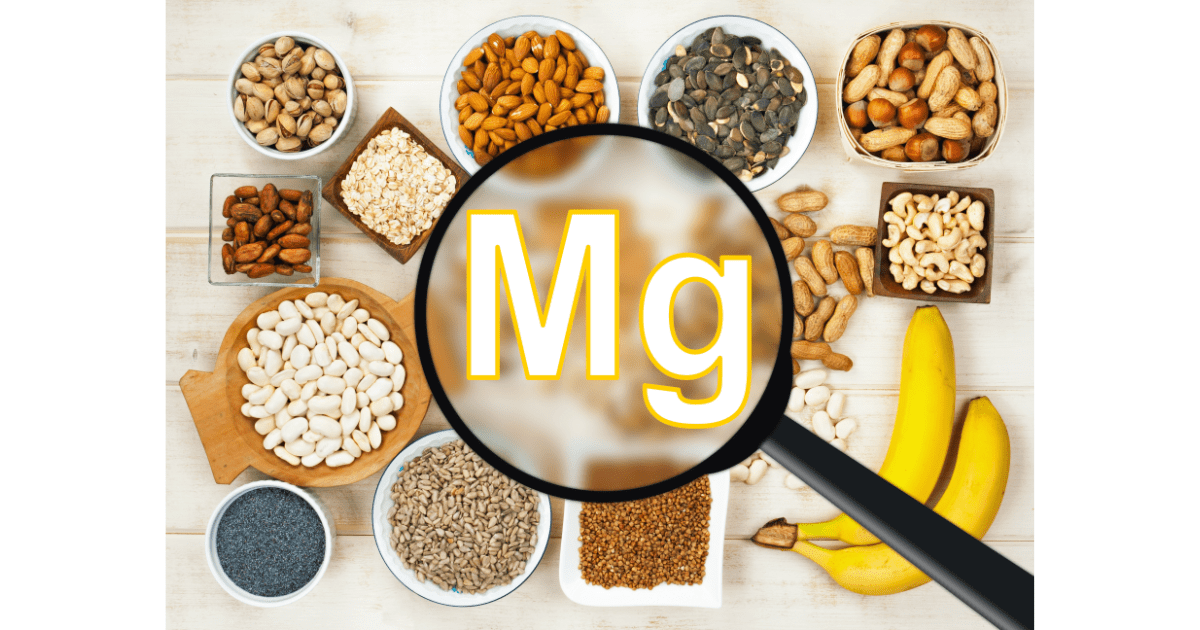The Essential Role of Magnesium in Maintaining Human Health
Magnesium Deficiency: Uncovering Symptoms, Risks, and Solutions for Optimal Health and Wellness
Magnesium is a vital mineral that is crucial in maintaining human health. This nutrient is involved in more than 300 biochemical reactions in the body, making it essential for many bodily functions. Despite its importance, many people don’t get enough of it in their diet, leading to various health problems.
Many experts believe that a section of the population in the US is deprived of magnesium-rich food. People whose intake is less than recommended will likely suffer from higher inflammation, contributing to several health conditions such as diabetes, certain cancers, and heart disease. Its deficiency is also believed to be a risk factor for osteoporosis.
In this article, we’ll explore its importance for human health, its benefits, dietary sources, and potential risks associated with deficiency.

What is Magnesium?
Magnesium is a mineral that is essential for human health. It is the fourth most abundant mineral in the body, found in bones, tissues, and organs. It is estimated that an adult contains approximately 25 g of magnesium out of which around 50% to 60% is present in bones and the remaining is in soft tissues of the body. Magnesium is involved in various functions, including energy production, protein synthesis, and DNA synthesis. The body requires it to produce energy, glycolysis, and oxidative phosphorylation. It also facilitates the transportation of calcium and potassium ions in the cell membranes.
It also plays a crucial role in regulating heart rhythm, maintaining healthy bones, and supporting the immune system.
What does is do for the body?
Magnesium is essential for many aspects of human health. Here are some of the key benefits of this vital mineral:
- Regulates Heart Health: It regulates heart rhythm and blood pressure. Research shows that people who consume more magnesium in their diet are less likely to develop heart disease.
- Promotes Healthy Bones: It is essential for the development and maintenance of healthy bones. It is involved in the production of bone-building cells and helps to regulate calcium and vitamin D levels in the body.
- Supports the Immune System: It plays a role in the production of white blood cells, which are essential for a healthy immune system. It also helps to regulate inflammation, which is linked to many chronic diseases.
- Improves Sleep Quality: It has been shown to improve sleep quality and reduce the risk of insomnia. It helps to regulate the production of the sleep hormone melatonin and has a calming effect on the nervous system.
- Helps Manage Stress: It has a calming effect on the nervous system, which can help to reduce stress and anxiety. It also helps to regulate the levels of the stress hormone cortisol in the body.
Dietary Sources
It is found in a range of foods, including:
- Dark leafy greens, such as spinach and kale
- Nuts, especially almonds, and cashews
- Seeds, including pumpkin seeds and sunflower seeds
- Legumes, such as black beans and lentils
- Whole grains, including quinoa and brown rice
- Avocado
- Bananas
- Dark chocolate
While many foods contain magnesium, it can be challenging to get enough of this nutrient from diet alone. In some cases, supplementation may be necessary to ensure adequate intake.
Risks of Magnesium Deficiency
Despite the importance of magnesium for human health, many people don’t get enough of this nutrient in their diet. Its deficiency can lead to a range of health problems, including:
- Muscle weakness and cramps
- Fatigue
- Insomnia
- High blood pressure
- Heart disease
- Type 2 diabetes
- Osteoporosis
- Migraines
- Anxiety and depression
In some cases, magnesium deficiency can be caused by medical conditions or medications that interfere with the absorption of this mineral. However, in many cases, inadequate magnesium intake is simply due to a poor diet.
Symptoms of Magnesium deficiency
- Muscles cramps
- Abnormal heartbeat
- Poor appetite
- Weakness
- Numbness or tingling in skin
- Seizures
- Fatigue
Recommended Allowance
According to the Recommended Dietary Allowance (RDA), recommended doses for adults 19-51+ years is 400-420 mg daily for men and 310-320 mg for women.
High doses of supplements can result in nausea, cramping, or diarrhea in some people. However, more magnesium from food is safe because kidneys excrete excess amounts through urine.
More than desired amount of magnesium in the form of supplements can create toxicity. In fact, people can get an adequate quantity of magnesium if they choose the right food rich in magnesium. The highest doses of magnesium supplements, according to the Griffin R Morgan is:
65 mg/day for children ages 1-3
110 mg/day for children ages 4-8
350 mag/day for adults and children ages 9 and up
Risks Factors
Risks associated with its supplements are outlined below:
- People suffering from intestinal disease, heart disease, diabetes, or kidney disease should seek the advice of their healthcare provider before taking its supplements.
- Its supplements are likely to interact with certain medicines for heart or antibiotics.
- There may be some side effects of its supplements, such as diarrhea, cramps, nausea, or stool softening.
Conclusion
Magnesium is a vital mineral that is essential for human health. It plays a role in regulating heart health, maintaining healthy bones, and supporting the immune system. It also has a calming effect on the nervous system, which can help to reduce stress and anxiety. While It is found in many foods, getting enough of this nutrient from diet alone can be challenging. In some cases, supplementation may be necessary to ensure adequate intake.
References:
Harvard T.H. Chan School of Public Health. The Nutrition Source. Magnesium. Retrieved February 21, 2023 from https://www.hsph.harvard.edu/nutritionsource/magnesium/#:~:text=Magnesium%20is%20a%20component%20of,hormone%2C%20which%20regulates%20calcium%20levels.
Griffin R. Morgan. Magnesium. WebMD. Retrieved February 23, 2023, from https://www.webmd.com/diet/supplement-guide-magnesium
National Institute of Health. Magnesium. Retrieved March 7, 2023, from https://ods.od.nih.gov/factsheets/Magnesium-HealthProfessional/#:~:text=Magnesium%20is%20a%20cofactor%20in,%2C%20oxidative%20phosphorylation%2C%20and%20glycolysis.
Category
- Health Issues (72)
- Healthy Diet (48)
- Herbs for Health (11)
- Mental Health (33)
- Skin Care (20)

